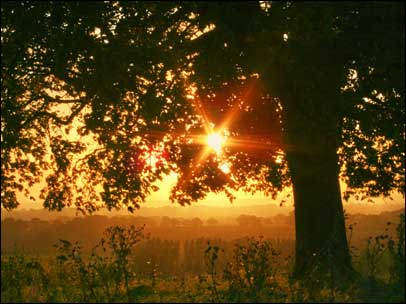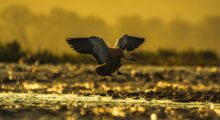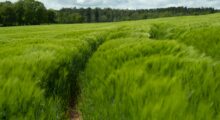 “Life,” by Anna Barbauld, is a unique poem; rather than question what death is, and wonder what happens to us after we die, Barbauld ponders what exactly life is. In her view, life is the active force, not death. Life leaves us when it wants to, rather than death seeking us out and taking us away. In the poem, Barbauld treats life almost as another person that she is bonded to, saying things like “Life! I…know that thou and I must part” (1-2) and referring to death as a “strange divorce” (11) from life. She even goes so far as to say, “And when, or how, or where we met,/I own to me’s a secret yet” (3-4). Death is frequently portrayed as a figure we “meet,” but seldom is life imagined as a person we encounter when we come into being, instead of an inherent part of us.
“Life,” by Anna Barbauld, is a unique poem; rather than question what death is, and wonder what happens to us after we die, Barbauld ponders what exactly life is. In her view, life is the active force, not death. Life leaves us when it wants to, rather than death seeking us out and taking us away. In the poem, Barbauld treats life almost as another person that she is bonded to, saying things like “Life! I…know that thou and I must part” (1-2) and referring to death as a “strange divorce” (11) from life. She even goes so far as to say, “And when, or how, or where we met,/I own to me’s a secret yet” (3-4). Death is frequently portrayed as a figure we “meet,” but seldom is life imagined as a person we encounter when we come into being, instead of an inherent part of us.
To Barbauld, this personified version of life carries on when we die; life doesn’t simply come to an end. Barbauld asks, “O whither, whither dost thou fly?/Where bend unseen thy trackless course?” (9-10). Barbauld believes that life “flies” somewhere when it leaves us, though she is unsure where it goes. Because she is confused by its path, she calls it “trackless.” The poet even toys with the notion that life hides in wait after death, only to return to us later:
Or dost thou, hid from sight,
Wait, like some spell-bound knight,
Through blank oblivious years th’ appointed hour
To break thy trance and reassume thy power? (17-20)
Barbauld wonders if death is merely a temporary “spell” put on life, keeping it “blank” and “oblivious” for a period of time. Perhaps, then, life, at the right moment, “break[s]” the “trance” and takes over again. This concept of delayed afterlife or reincarnation is a strange one, but certainly one that makes you think. Barbauld proposes this option because she can’t fathom life having its power taken away: “Yet canst thou without thought or feeling be?/O say, what art thou when no more thou’rt thee?” (21-22).
In the final stanza, Barbauld returns to the idea of life as a companion to us:
Life! we have been long together,
Through pleasant and through cloudy weather;
‘Tis hard to part when friends are dear;
Perhaps ‘twill cost a sigh, a tear;–
Then steal away, give little warning,
Choose thine own time;
Say not Good-night, but in some brighter clime
Bid me Good-morning! (23-30)
Through the good times and the bad, (“pleasant and…cloudy weather”), life has been there with us, through it all. Because it’s “hard to part when friends are dear,” Barbauld wishes for life to leave her abruptly (with “little warning”). She does not wish for life to stay long enough to say “Good-night,” because goodbyes are painful. Rather, she wants life to greet her again at some happier point in the future, or “brighter clime,” so that it can say to her, “Good-morning!” Though this is an unorthodox view, it’s certainly food for thought, and it reminds us that death is not an evil force that robs us of life; life leaves us of its own accord, when it is ready to.

 “Life” by Anna Barbauld
“Life” by Anna Barbauld


 Rutgers Health Study May Improve End-of-Life Care
Rutgers Health Study May Improve End-of-Life Care

 Did Our Ancestors Leave Behind a Map of the Afterlife?
Did Our Ancestors Leave Behind a Map of the Afterlife?















Thanks for the positive spin on death.
Report this comment